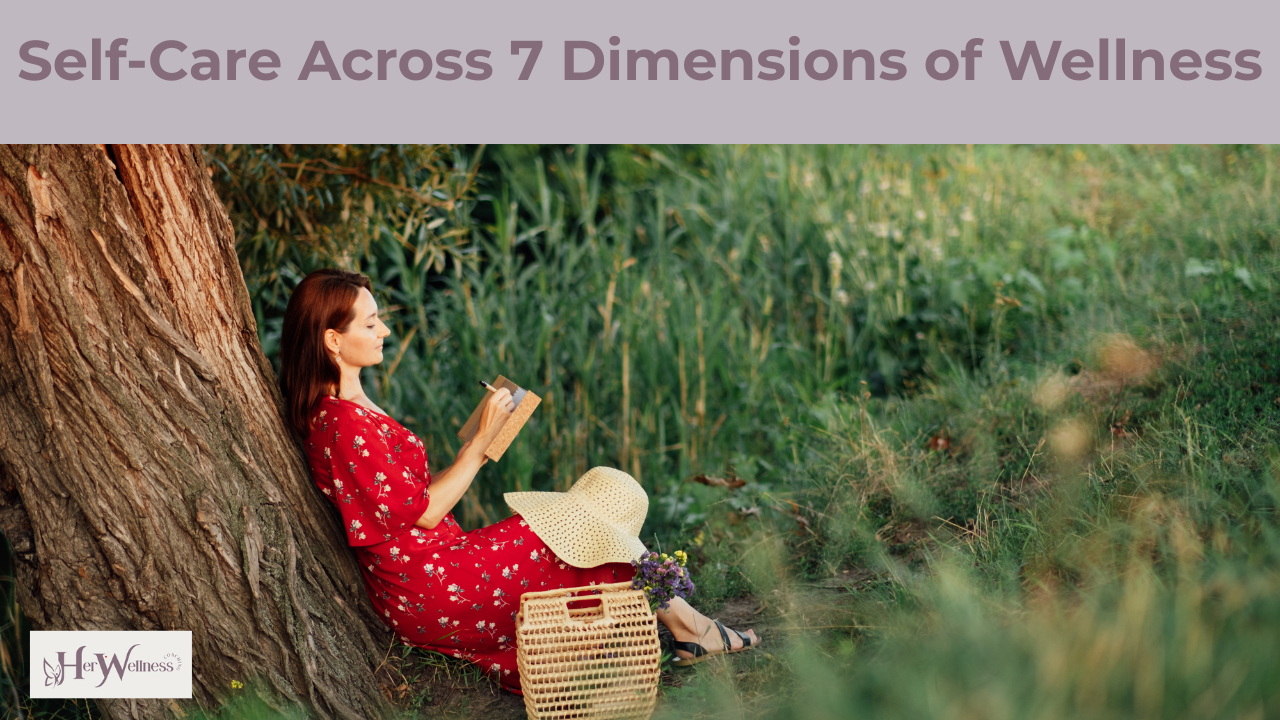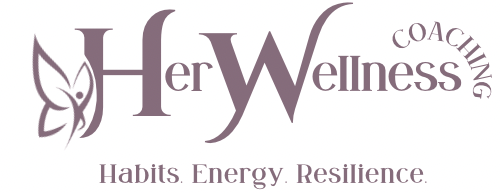Self-Care Isn't a Luxury, It's Foundational
Aug 27, 2025
Wellness Is More Than Physical
We’ve all heard the phrase “self-care” tossed around. It often brings to mind bubble baths, spa days, or treating yourself. But real self-care is much deeper than that. It’s about consistently taking care of your whole self - body, mind, and spirit - so you have the energy and resilience to live the life you want.
Why Self-Care Matters
When you’re busy caring for everyone else, it’s easy to push your own needs aside. But neglecting self-care doesn’t just lead to exhaustion, it can make you more vulnerable to illness, burnout, and frustration.
True self-care is about building practices that support every dimension of your health so you can feel grounded, capable, and confident.
My Aha Moment with Self-Care
For years, I focused almost entirely on food to manage my Hashimoto’s. I knew other things mattered, but food was my main priority. Then, after a particularly stressful period triggered a flare (even though I was eating well, exercising, and prioritizing sleep) I realized something important: emotional self-care mattered just as much.
Stress wasn’t something to address only when it got bad; it was something I needed to manage consistently, every day. That moment changed how I approached self-care.
Now, I make time daily for practices that reduce stress and protect my emotional well-being; because when I do, everything else feels more manageable.
The 7 Dimensions of Wellness
Self-care isn’t one-size-fits-all. To feel truly balanced, it helps to look at your whole life. Here are seven dimensions to reflect on:
1. Physical Wellness
Caring for your body gives you the energy to show up in every other area of your life.
Examples of physical self-care:
-
Moving your body regularly in ways that feel good
-
Getting enough sleep and waking up rested most days
-
Eating in a way that supports your health and energy
Ask yourself: Do I feel physically capable and energized throughout the day?
2. Emotional Wellness
This is about noticing, naming, and managing your emotions in healthy ways.
Examples:
-
Having tools to handle stress and ups and downs
-
Treating yourself with kindness, especially during difficult times
-
Feeling emotionally supported by people in your life
Ask yourself: Do I bounce back well after emotionally challenging days?
3. Intellectual Wellness
Self-care also means stimulating your mind and growing as a person.
Examples:
-
Making time for hobbies or personal growth
-
Engaging in activities that make you think or create
-
Continuing to learn and feel mentally clear and focused
Ask yourself: Do I feel like I’m growing intellectually or creatively?
4. Occupational Wellness (Including Financial)
Work, caregiving, and finances all impact wellness. Self-care here means creating balance and alignment with your values.
Examples:
-
Finding meaning or purpose in your daily roles
-
Setting boundaries that support work-life balance
-
Feeling financially stable and in control of your money
Ask yourself: Does my daily work align with my values and support my well-being?
5. Spiritual Wellness
Spiritual self-care looks different for everyone, but at its core, it’s about connection and meaning.
Examples:
-
Living in alignment with your values
-
Making space for prayer, reflection, or gratitude
-
Having practices that ground you when life gets hard
Ask yourself: Do I feel spiritually connected or fulfilled in a way that matters to me?
6. Social Wellness
Humans are wired for connection, and social self-care means surrounding yourself with supportive people.
Examples:
-
Building meaningful relationships with people you trust
-
Asking for support or setting healthy boundaries when needed
-
Spending time with those who bring you energy more often than stress
Ask yourself: Do I feel like I belong and can be myself around others?
7. Environmental Wellness
Your surroundings can either drain or energize you. Environmental self-care is about creating spaces that support your well-being.
Examples:
-
Maintaining a home or workspace that feels safe and functional
-
Connecting with nature or spending time outdoors
-
Designing environments that reflect your values
Ask yourself: Does my environment feel calm and supportive—or cluttered and draining?
The HER Connection
-
Habits: Small, consistent acts of self-care build stability.
-
Energy: Balanced self-care restores your energy instead of depleting it.
-
Resilience: Caring for yourself across all 7 areas helps you adapt when life gets messy.
Want Help Creating a Self-Care Plan That Works for Real Life?
You don’t have to overhaul everything at once. Start by choosing just one area from the list above that could use a little more attention.
If you’re not sure where to begin, that’s where coaching can help. Together, we can clarify your priorities and create a plan that supports all areas of your wellness.
👉 [Schedule Your Free HER Clarity Call]

